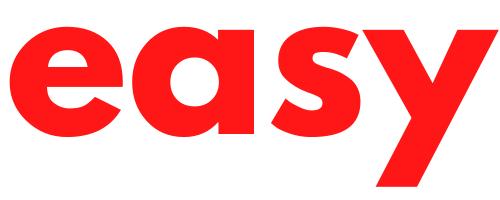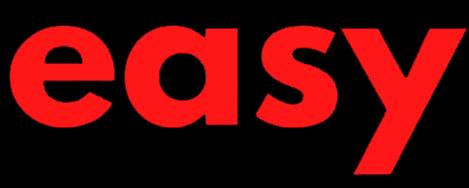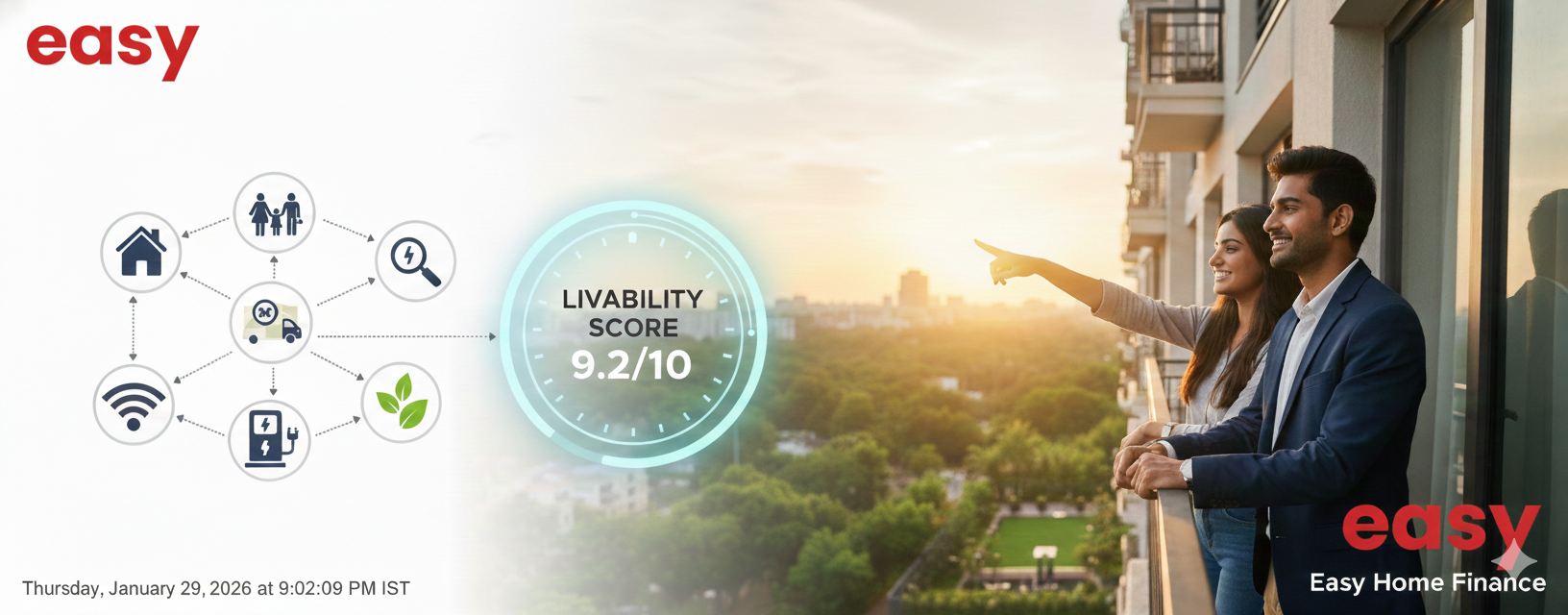A friendly guide to help you understand what lenders look for
So, you’re thinking about buying a home — exciting times! But before you dive in, you’ll probably ask yourself this:
“Will I get a home loan? And how much can I actually get?”
These are important questions, and luckily, they’re not as complicated as they sound. Banks and housing finance companies follow some standard steps to check if you’re eligible for a home loan — and if you understand how they think, you can prepare better (and worry less).
Let’s break down how banks assess home loan eligibility in India, in a simple and clear way.
What Does “Home Loan Eligibility” Really Mean?
In simple terms, home loan eligibility means whether you qualify for a loan — and how much money a bank or NBFC (like Easy Home Finance) is willing to lend you, based on your income, spending, credit score, and property value.
So when you apply, the lender looks at a few key things to make sure you can comfortably repay the loan over time.
Your Income: The First (and Biggest) Factor
The first thing any lender checks is your income. This tells them how much EMI (monthly loan payment) you can afford.
If you’re salaried, your net monthly income matters — that is, the amount you actually take home after taxes and deductions.
If you’re self-employed, lenders look at your average income over the last few years (through ITRs, bank statements, etc.) to see how stable your business is.
If you’re wondering “What’s the minimum salary for home loan approval?”, many lenders accept applicants earning as little as ₹20,000–₹25,000 a month — especially for affordable housing.
What Is FOIR, and Why Does It Matter?
Now here’s a term you’ll often hear: FOIR — it stands for Fixed Obligations to Income Ratio. Don’t worry, it’s not complicated.
FOIR simply shows how much of your income already goes into other EMIs — like a car loan, personal loan, or credit card dues. Banks usually prefer your FOIR to be below 40% or 50%. That means, at least half of your income should be free to cover the new home loan EMI.
For example, if your monthly income is ₹40,000 and you’re already paying ₹10,000 in other EMIs, you’re still in a good position to take on a home loan.
Want to check this easily? Easy Home Finance has a simple FOIR calculator to help you understand where you stand.
LTV: How Much Loan Will You Get?
Another thing lenders check is your Loan to Value (LTV) ratio. This tells them what percentage of your home’s value they’re willing to finance.
Let’s say your home costs ₹50 lakh. If the lender offers an 80% LTV, you’ll get a loan of ₹40 lakh, and you’ll need to arrange the remaining ₹10 lakh as a down payment.
So, the better your profile (income, credit, documentation), the higher the loan amount you can qualify for — within LTV limits.
What About Your Credit Score?
Your CIBIL score is a big part of the puzzle too. It shows your track record of repaying loans and credit cards. A score above 700 is generally considered good, but some lenders are flexible depending on other factors like income and property value.
If your score is low, don’t panic — many lenders (including digital ones like Easy Home Finance) offer paperless loan approval using alternative data and flexible credit checks.
Still, it’s a good idea to check your CIBIL report for home loan approval before applying, and fix any errors or overdue payments if needed.
What Documents Do You Need?
To assess your eligibility, lenders will ask for a few basic documents. These usually include:
- Your PAN and Aadhaar
- Income proof (salary slips, ITR, business records)
- Recent bank statements
- Credit report
- Property papers
With digital lenders, you can upload all of this from your phone — no need to visit a branch or stand in line.
What If You’re Self-Employed?
Many people think it’s harder to get a loan if you’re self-employed. Not true!
Lenders now accept all kinds of proofs — like your income tax returns, GST filings, or even transaction histories. If your income is regular and your documents are clean, you’re just as eligible as a salaried person.
In fact, Easy Home Finance offers customised home loan eligibility for self-employed individuals with a fast, paperless process.
Final Thoughts: Know Your Profile, Apply With Confidence
Understanding how banks think helps you feel more in control. Now you know that your income, FOIR, credit score, and property value all come together to decide your home loan eligibility.
So, before you apply:
- Check how much loan you can get based on your salary
- Use a FOIR calculator to stay in the safe zone
- Review your credit score
- Make sure your documents are ready
Easy Home Finance makes this easy with tools like instant eligibility checks, online applications, and fast approvals — designed to help first-time home buyers like you.
Ready to Begin?
Apply for a Home Loan with Easy Home Finance : https://easyhomefinance.in/site/apply
Check Your Eligibility Instantly : https://easyhomefinance.in/loan
Learn More About Our 100% Digital Process : https://www.easyhomefinance.in









Leave a Comment